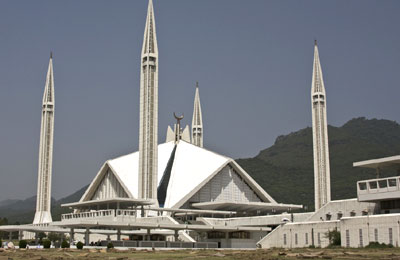
Pakistan 'in critical balance of payments situation'
Islamabad, March 6, 2013
Pakistan has reached a critical balance of payments situation and will need another package from the International Monetary Fund before the end of the year to avert a crisis, one of the biggest lenders to the country said on Wednesday.
The Asian Development Bank's country director, Werner Liepach, also told Reuters in an interview Pakistan will need up to $9 billion from the IMF to shield the economy.
Pakistan currently has enough hard currency to cover only about two months of imports. Asked if the country, a key US ally, was in a balance of payments crisis, Liepach said: "It depends how you define a crisis. Maybe we are already in a crisis."
A fragile economy is just one of Pakistan's myriad problems as it heads into an election expected in May. The government is facing a stubborn Taliban insurgency and a worsening sectarian conflict in which hundreds have been killed in recent months.
In 2008, Pakistan averted a balance of payments problem by securing an $11 billion IMF loan package, but the IMF suspended the programme in 2011 after economic and reform targets including widening the country's miniscule tax base were missed.
Some analysts have since warned about the prospect of a new balance of payments crisis.
Asked if Pakistan could avoid going back to the IMF, Liepach said: "I don't see that happening. It's a question of time. They need to do this before the end of this calendar year."
"It needs to be $6 billion to $9 billion."
So far, remittances from Pakistanis working overseas of about $1 billion a month have helped keep Pakistan afloat, but by a thin margin.
"We are now at less then three months of imports. The current outlook is for a further decline in foreign exchange reserves," said Liepach.
CRISIS
The ADB, along with the IMF, has been encouraging Pakistan's unpopular government to carry out politically-sensitive reforms to strengthen the economy and widen the country's revenue base.
There is little chance of that happening anytime soon as the ruling Pakistan People's Party and its coalition partners gear up for the national election.
Past decisions to raise fuel prices, for instance, have triggered street protests, prompting the PPP's allies to leave the governing coalition and handing political ammunition to Pakistan's highly vocal opposition parties.
But the IMF has said it will not consider rescheduling repayments of the $6.2 billion Pakistan still owes without a comprehensive plan for reform agreed on by all political parties.
"There are many payments that need to be made to international organisations, most importantly the IMF. There is a big chunk in payments to be done over the next two years that is not matched by inflows," Liepach said.
The Pakistani rupee has eased 0.8 percent against the dollar so far this year after losing 7.6 percent in 2012. Last year's slide is more severe than the fall of the Indonesian rupiah, which was the worst performing currency among the top traded regional units, according to Thomson Reuters data.
On Dec. 1, it hit a record low of 98.24 to the greenback.
"The saving grace at this moment in time is the relatively high remittances that continue to come. About a billion dollars plus a month," said Liepach.
"That provides some cushion but that is not something that is resolving or addressing the issue at heart." - Reuters







